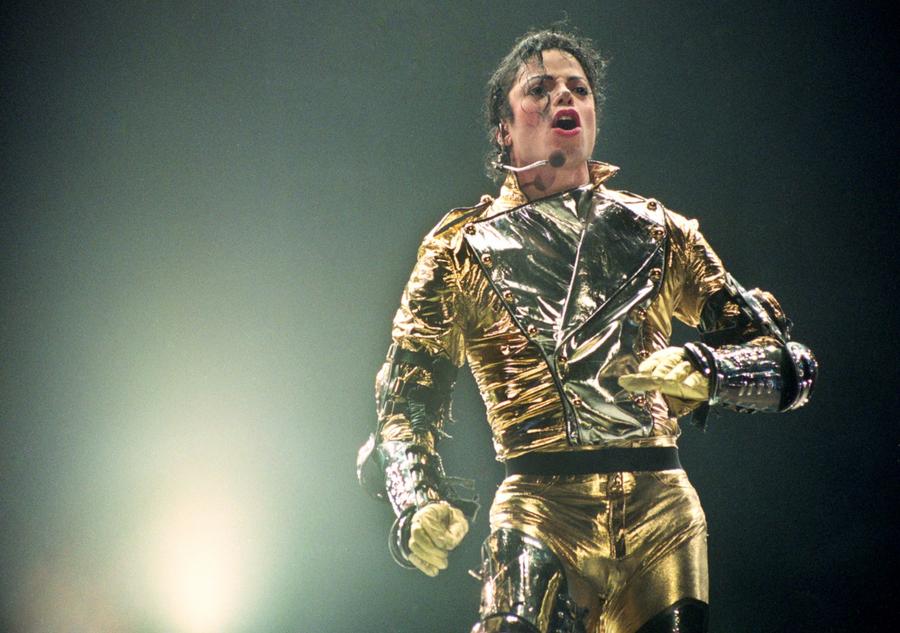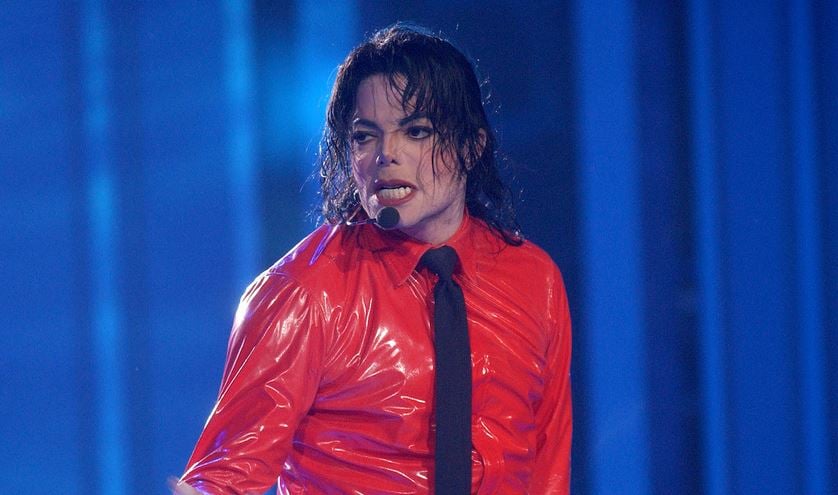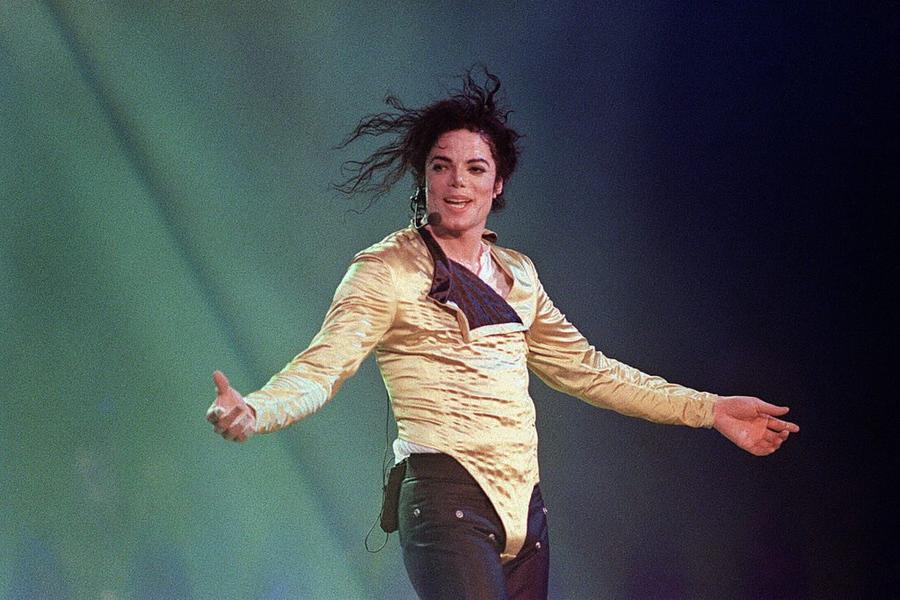What was Michael Jackson's Net Worth?
Michael Jackson was an American singer, songwriter, actor, producer, and philanthropist who had a net worth of negative $500 million at the time of his death. Though his estate would go on to earn over $2 billion in the years after his death, technically speaking, at the time of his death, Michael was in debt to the tune of $500 million thanks to decades of overspending and over-borrowing. To date, he has sold over 750 million albums, including 35 million that were sold in the year following his death.
In the decade between 1985-1995, Michael Jackson comfortably earned between $50 and $100 million per year through touring, record sales, endorsements and merchandise. Unfortunately, Michael spent the money just as fast as he earned it. His lavish lifestyle cost about $50 million a year to maintain. He paid out $12 million to his girlfriend/egg donor, Debbie Rowe. He spent another $20 million settling a child molestation case, not to mention tens of millions on attorneys. Neverland Ranch cost $19.5 million to buy and a whopping $10 million a year to maintain. He spent $35 million remodeling the compound into his own amusement park. And then there were the Bentleys, the antiques, the art, the exotic animals, and those famous diamond-encrusted gloves. Jackson also spent between $50 and $100 million on movie and music projects that never got off the ground.

(Photo by Phil Walter/Getty Images)
Michael Jackson Net Worth at Death
Technically, Michael Jackson's net worth at the time of his death was negative $500 million. In order to finance his lifestyle, at one point, Michael took a $380 million loan from Bank of America, using his 50% ownership stake in the music publishing company Sony/ATV as collateral. The interest alone on that loan was tens of millions annually. Within just a few years, he blew through the whole $380 million plus $120 million. That is why, at the time of his death in 2009, Michael Jackson was $500 million in debt.
Music Catalog
Michael's most valuable asset at the time of his death was his two music catalogs. His Mijac Music company controlled his own work plus songs by dozens of artists like Sly and the Family Stone, Jerry Lewis, and Ray Charles. He also famously owned the Beatles catalog. Or, more specifically, he owned 50% of the company that owned the Beatles catalog plus hundreds of thousands (today millions) of other songs.
Michael's first foray into owning music rights began when he purchased the catalogs of Sly and the Family Stone in the early 1980s through his company Mijac. He then bought a series of classic singles like "Great Balls of Fire," "Shake Rattle Rattle and Roll," "When a Man Loves a Woman," and "Runaround Sue," to name a few.
In November 1984 when Michael purchased The Beatles catalog, ATV Music, for $47.5 million. In 1991, Sony paid Michael $95 million to merge ATV with its own music catalog. The resulting company was named Sony/ATV. In 2016, Sony paid Michael's estate $750 million for its half of the company. Today, Sony/ATV controls millions of songs and is worth $2-4 billion.
Buying the Beatles
Back in 1984, Robert Holmes owned The Beatles' song catalog. The Australian business magnate was putting it up for sale in the form of ATV Music Publishing, a company he had formed that owned the rights to about 4,000 songs, including a division called Northern Songs, which was the music publishing arm of The Beatles. The fact is that Paul McCartney and John Lennon signed a terrible contract at the beginning of their career that gave the publishing rights to more than 250 songs to Northern Songs. In 1984, Paul McCartney and Yoko Ono were given the opportunity to buy the Beatles catalog but passed because the $40 million price tag was too high.
In the meantime, then-25-year-old Michael Jackson was fresh off the incredible success of Thriller and in the middle of a two-year-long shopping spree for music publishing rights. He invested millions between 1982 and 1984 buying up publishing rights from such artists as Sly and the Family Stone and such hits as Great Balls of Fire, When a Man Loves a Woman, , and Runaround Sue, to name just a few. Jackson's longtime attorney, John Branca, heard that the ATV catalog/The Beatles catalog was for sale and approached Michael about buying it. Michael told him to spare no expense, and so, with the highest offer at $40 million, Jackson successfully won the auction with an offer of $47.5 million ($115 million in today's dollars).
From that point on, Michael was free to license any Beatles song, which he did in 1987 when he licensed Revolution to Nike for $500,000. In that deal, Jackson got $250,000, and McCartney and Lennon received $125,000 each since they still owned the songwriter's royalties.
Merging With Sony
In 1995, Sony approached Michael with an incredible offer. Sony offered to pay him $95 million ($230 million today) to merge ATV music with their catalog and create a new 50/50 owned publishing powerhouse. Michael agreed and instantly earned back twice his initial investment while also gaining 50% ownership of a much bigger music publishing company. Furthermore, Jackson still controlled 100% of his own songs through a separate company called Mijac Music.
The new Jackson/Sony company would be known as Sony/ATV Music Publishing and would grow over the next decade to 200,000 songs. Between 2005 and 2013, Sony/ATV grew to control two million songs—including the catalogs and songs of artists including Lady Gaga, Bob Dylan, Beck, and Eminem. In 2012 alone, the company earned $1.25 billion from licensing and royalties and had an income of $500 million. Today, the company is worth between $2-4 billion.

Getty
Earnings and Expenses
During his lifetime, Jackson made about $500 million from his own music, concerts, videos, and endorsements, but at the time of his death in 2009, he was essentially $500 million in debt. Jackson was left penniless after he spent all of his money on an elaborately complicated and luxurious lifestyle. He spent between $30 and $50 million per year on his lifestyle alone and racked up massive unpaid bills with his lawyers, agents, and publicists. A few highlights:
- $17 million to purchase the Neverland Ranch plus $5 million in annual maintenance costs
- $20 million to settle a child molestation lawsuit.
- $65 million on a variety of video projects, including the 35-minute film "Ghosts" that he co-wrote with Stephen King
- $12 million divorce settlement with girlfriend Debbie Rowe.
- $5 million in annual interest payments on his debts.
- Tens of millions spent on Bentleys, antiques, art, clothes, chimpanzees, diamond-encrusted gloves and other trinkets.
In order to fund his ongoing lavish lifestyle, Jackson took out a $380 million loan against the value of his music catalog. The pop star was notoriously naïve when it came to his finances, and he had an over-inflated sense of his net worth. Towards the end of his life, he entered a tailspin of financial transactions with banks, hedge funds, and other shady characters in an attempt to maintain his lifestyle while staging a professional and financial comeback. Before his death, Michael had spent through the entire $380 million loan and had little hope of making the interest payments, let alone paying back the principal. This debt is the main reason Michael was forced to stage the comeback tour "This Is It," which arguably was the cause of his death.

Michael Jackson Net Worth / FRANCIS Sylvain/AFP/Getty Images
Who Inherited Michael Jackson's Estate?
In the years after his death, Michael Jackson's executors staged an aggressive financial comeback. One of their primary goals was to return the estate to solvency so they did not have to sell his prized music portfolio.
Michael's will expressly left 40% of his assets to his three children, to be split evenly. Another 20% was left to various children's charities, and the final 40% was left to support his mother, Katherine. Upon Katherine's death, that 40% balance goes to Michael's kids, which means eventually, his three children will split 80% of the estate.
Jackson Estate Net Worth Post Death
Ironically, dying was probably the best thing that ever happened to Michael's finances. In the years since he died on June 25, 2009, he has consistently been the highest-earning dead celebrity on the planet. Beginning almost right after Michael's death, his executors moved to shore up the pop star's finances. They immediately sold Michael's future music rights to Sony for $250 million, which at the time was the largest record deal in history. His lawyers also combed through thousands of hours of personal home video from the last year of his life to produce a movie called "This Is It," which was released in theaters around the world. To date, the film has made over $500 million. After the success of the movie and the record contract, many other endorsers came calling. Pepsi struck a deal to license Michael's image. Cirque du Solei produced two Las Vegas shows around his music and image. Jackson's estate is 50/50 partners with the Cirque du Solei on both shows. Furthermore, Michael Jackson left tens of thousands of personal items and memorabilia, which are being stored in three giant warehouses in Southern California. The items are to be stored until all three of his children reach 18, at which time they can decide what they wish to keep and what can be auctioned off.
His 50% stake in the Sony/ATV music catalog generates eight-figure dividends for his estate to this day.
Since Michael Jackson died in 2009, his estate has brought in over $700 million. More than any other living artist in that time. His executors have easily paid back his loan from Sony and have secured the future of his billion-dollar music catalog. Earnings milestones:
- 2022: $75 million
- 2021: $75 million
- 2020: $48 million
- 2019: $60 million
- 2018: $400 million
- 2017: $75 million
- 2016: $825 million
- 2015: $115 million
Neverland Ranch
As you probably know, Michael Jackson lived much of his adult life at a sprawling estate that he dubbed Neverland Ranch. Located in Los Olivos, California, in Santa Babara County, Neverland has been on the market since 2015. Unfortunately, it has struggled to find a buyer even after being renovated, renamed, and reduced (in price). Here's a brief history of Neverland and a rare drone video tour courtesy of the real estate agent…
Michael Jackson purchased Neverland Ranch in 1987 for $19.5 million. That's the same as around $44 million in today's inflation-adjusted dollars. After acquiring the 2700-acre property, Jackson proceeded to build an elaborate fantasy land complete with an amusement park, exotic animals, and a working train. The upgrades and additions cost him millions of dollars. The property was built in a Peter Pan theme, a nod to Michael's feelings about his own arrested development thanks to early fame and lost childhood.

Getty
He threw lavish parties for friends, family, and even strangers at the house. Kim Kardashian's 14th birthday was held at the ranch thanks to her dad's business connections to Michael. Elizabeth Taylor got married there in 1991.
The main residence of the property is a 12,600-square-foot French-Normandy-style mansion. The house features five bedrooms, eight bathrooms, a dance studio, a 50-person movie theater, and much more. There's a four-acre lake, tennis courts, a basketball court, barns, and multiple guest/staff houses. In total, there are 22 structures on the property.
After Michael faced child molestation charges in 1993 and then again in 2003, Michael's career and liquid financial status were permanently damaged. He no longer had the income that was necessary to pay the mortgage and the estimated $1 million per year in upkeep costs. At one point, he defaulted on what had ballooned to a $25 million debt connected to the property.
In 2008, Michael was facing foreclosure. His bank sold the $25 million debt to a private equity firm called Colony Capital for $23 million.
After Jackson died in 2009, Colony spent millions on upgrades, intending to sell the property as soon as possible. They changed the name from Neverland Ranch to Sycamore Valley Ranch. They listed it for $100 million.
Maybe it was bad vibes from the former owner, or perhaps the price was too high, but potential buyers did not show much interest in the property. In 2018, Colony reduced the price to $67 million.
In December 2020, billionaire Ron Burkle finally agreed to buy Neverland for $22 million.
Here is a rare drone video tour of Neverland:
/2009/09/Michael-Jackson.jpg)
:strip_exif()/2020/01/paul-mccartney-3.jpg)
/2012/06/Paris-Jackson-1.jpg)
/2013/06/John-Branca-1.jpg)
:strip_exif()/2020/02/drake-net-worth.jpg)
/2010/03/GettyImages-176550317.jpg)
/2020/02/melissa-rivers.jpg)
/2020/11/Yella-Beezy.jpg)
/2020/08/cusack.jpg)
/2023/08/richard-dawson.png)
/2011/08/Doug-Hutchison.jpg)
/2010/07/GettyImages-80351333.jpg)
/2021/01/oldman.jpg)
/2012/11/GettyImages-470080838.jpg)
/2009/12/Mario-Lopez-1.jpg)
/2014/07/GettyImages-688457574.jpg)
/2023/04/Benny-Blanco.jpg)
/2009/09/Michael-Jackson.jpg)
/2010/03/GettyImages-176550317.jpg)
/2014/06/mj.jpg)
/2016/03/jack.jpg)
/2015/10/Michael-Jackson.jpg)
/2014/02/GettyImages-94983986.jpg)
/2024/02/michael.jpg)
/2015/06/mj1.jpg)